Wrong way, go back
My last Dis-Con Note (‘Watching and hoping, Mr Morrison’, 13/07/19) pointed out that, despite his ‘miracle’ election victory, Prime Minister Scott Morrison ‘has not really succeeded in what still needs to be his primary task of winning back the Dis-Con vote’. Dis-Cons, it said, ‘need to be convinced that we now have … [a government] centred on genuinely conservative values’, and it went on to suggest various actions by ‘which it would be open to Morrison to give a clear, non-temporising lead’ to that effect. We Dis-Cons, it concluded, ‘will be watching, and hoping’.
How misguided could one be! Between those words being written, and their publication only six days later, the Prime Minister, through his so-called Minister for Indigenous Australians (aren’t all of us native-born Australians indigenous?), told us that he is no conservative. How could I, really, have even hoped otherwise? After all, as an earlier Dis-Con Note (‘How to vote, conservatively’, 11/05/19) said, he ‘believes in nothing (his religion, and his family, apart)’.
What is more surprising is Morrison’s mishandling of this affair. A fortnight later, it is still not clear on what basis he authorised Ken Wyatt to tell us, inter alia, that the government would pursue Aboriginal constitutional ‘recognition’ via a referendum within the present parliamentary term.
Was it a ‘captain’s call’ emanating from his tête-à-tête a week earlier with Opposition Leader Anthony Albanese? Did it go to Cabinet, as surely such an important matter should have done? And why, crucially, was the Coalition party room never consulted? The National Party Leader, Michael McCormack was informed (and to his eternal disgrace, apparently raised no objection!) so perhaps Morrison may have ‘consulted’ his leadership group. If so, that was clearly inadequate.
One example may illustrate the stupidity of all this. The foremost demand in the grandiloquently-titled Uluru Statement from the Heart is for a ‘Voice to Parliament’, installing an as yet undefined Aboriginal body empowered to ‘advise’ the Parliament on any proposed measure that, in its opinion, has implications for Aboriginal people. Morrison might think about the fate of his tax package, so triumphantly passed in the new Parliament’s first sitting week, had it had to run the gauntlet of such a ‘Voice’ – and incidentally, this is just as true of a legislated ‘Voice’ as a constitutionally entrenched one. One thing’s for sure: unless a ‘bribe’ of some kind had meanwhile been promised, no tax cuts would yet be in train.
The objections don’t stop there. With trust in governments seriously eroded, what was Morrison thinking in proposing now a major measure which, during a five-week election campaign, he had never mentioned? (Pointing, by way of ‘justification’, to some April Budget provisions of which almost nobody was aware, adds insult to injury!). Is this how he requites the faith placed in him by those ‘quiet Australians’ whom he so recently thanked for again entrusting him with government?
Ultimately, the most substantial objection is this: how dare the Prime Minister (initially) seem to approve importing into our Constitution (or even legislating for) such unequivocally racist proposals? As the Institute of Public Affairs has been saying for some years past, ‘Race has no Place’ in our Constitution. (Right there, by the way, is the ‘No’ case slogan should a referendum on these matters ever eventuate).
It’s true that, since that initial major mis-step, Morrison has retreated from constitutionally entrenching the ‘Voice’.
Welcome though that back-flip is, it does not begin to address the totality of this matter. The Uluru Statement includes other demands, including a ‘truth-telling’ commission to ‘rectify’ the alleged distortion of Aboriginal history, and a body to bring about ‘treaties’ between Aboriginal Australians and the rest of us. So, far from rejecting all this clamour out of hand, Morrison still seems to contemplate injecting some form of ‘recognition’ into our Constitution – to become an open invitation to our High Court Justices to impose their own interpretations on whatever words are chosen for that purpose.
Speaking of High Court Justices, the opinions of former chief justice the Hon. Murray Gleeson, reported in the Australian (19/07), regrettably lend support to much of this nonsense. That is not really surprising: his Honour was a member of the Referendum Council that presided over the Ayers Rock proceedings in 2017 and subsequently recommended the resulting Uluru Statement to the federal government, then led by Malcolm Turnbull (who, to his credit, flatly rejected it both because it was ‘a bad idea’ and because it would have no hope of succeeding in a referendum).
The fundamental objection, however, to these remarks by his Honour is that, like those expressed earlier by constitutional lawyer Professor Anne Twomey in the Weekend Australian (13-14/07), they miss the point. This issue is not about constitutional law, where the capacity of them both is undoubted, but about politics, where both reveal themselves to be naive. As merely the latest in the unending parade of Aboriginal activist industry demands, these proposals will, if conceded, then immediately lead on to others – as, indeed, some of those activists have already publicly indicated.
‘Quiet Australians’ have long since had enough of all this. They believe that we are all Australians, and they strongly object to any attempt to divide us into First Australians and Second Australians. They will reject these divisive proposals if ever put to them, and they will, when given the electoral opportunity, punish the government responsible for doing so. While much of the damage done is irretrievable, Morrison’s only course now is to acknowledge that it has been a case of ‘Wrong way, go back’.
Got something to add? Join the discussion and comment below.
Get 10 issues for just $10
Subscribe to The Spectator Australia today for the next 10 magazine issues, plus full online access, for just $10.
You might disagree with half of it, but you’ll enjoy reading all of it. Try your first month for free, then just $2 a week for the remainder of your first year.

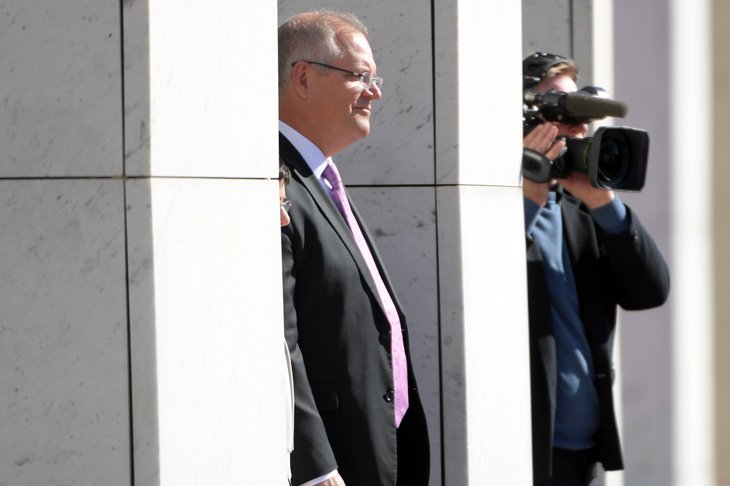
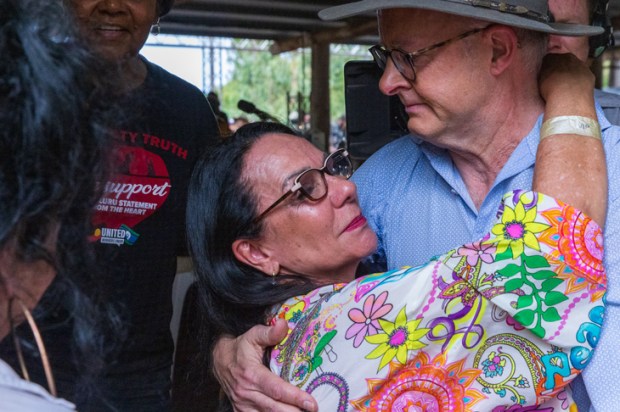
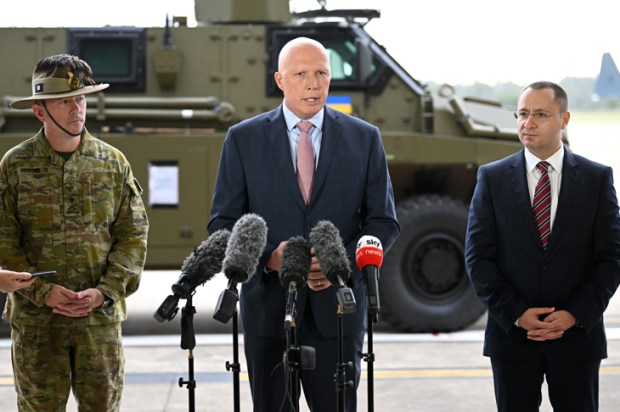
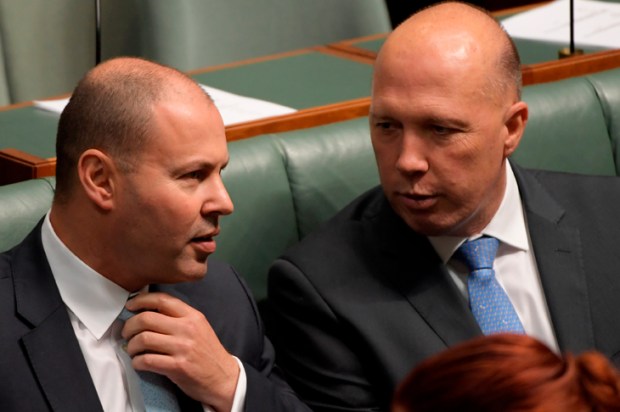
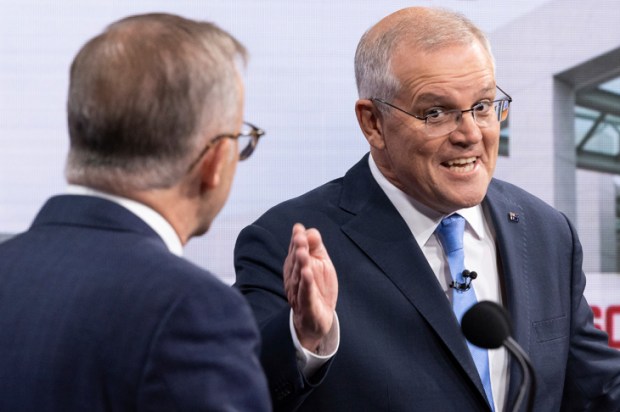

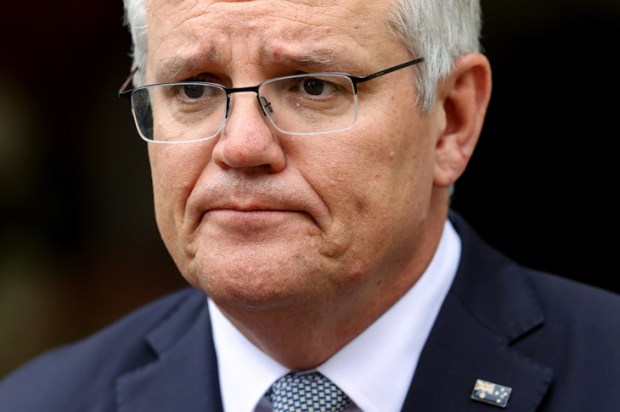






Comments
Don't miss out
Join the conversation with other Spectator Australia readers. Subscribe to leave a comment.
SUBSCRIBEAlready a subscriber? Log in